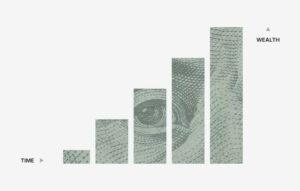When it comes to investment, the paradox of wealth is significant because it implies that material prosperity may not be the key to long-term satisfaction and contentment. Understanding the paradox drives investors to think about more than just financial gain, which is important because they often aim to build wealth through financial markets.
It stresses the significance of balancing money gain with other kinds of enjoyment and of connecting financial goals with broader life objectives in investment.
If you are looking to invest as an expat or high-net-worth individual, which is what I specialize in, you can email me (advice@adamfayed.com) or WhatsApp (+44-7393-450-837).
Before we get to the specifics of the paradox of wealth, we must understand the specific meaning of some basic terms namely paradox and wealth.
Understanding the Paradox of Wealth
What is a paradox?
Paradox refers to a situation or statement that is supposedly having contradictory qualities or phases.
In simpler terms, the situation or statement looks to be against common sense, but when examined or explored properly, they have a hidden truth.
Some notable paradox examples include:
- The ‘Liar Paradox’. Imagine a person saying “I always lie”. Over here, we can understand that the person is a liar, but they are telling the truth that they lie.
- Another classic example of a paradox is the “Bootstrap Paradox.” This paradox challenges the concept of cause and effect in time travel scenarios.
What is wealth?

The total valuable assets possessed by a person, company, country, etc., is known as wealth.
To determine the wealth of an individual, we must weigh in all the physical and intangible assets possessed by a person, and then subtract debt from them.
An individual, organization, or nation is considered wealthy when they accumulate several valuable resources or goods.
Net worth is a measurement for determining wealth, as I said, is the total value of assets minus the debts.
Other wealth components include money, real estate properties, investment assets, possessions, and valuable goods.
The Paradox of Wealth Definition
The term wealth paradox can be used in different contexts.
However, it generally refers to a situation or phenomenon that appears contradictory or counterintuitive to wealth and economic factors.
According to the Charles Schwab Modern Wealth Survey, there are several paradoxes of wealth.
Here are some paradox examples of the paradox of wealth.

- The early wealth paradox questions the idea that inflation lowers quality of life, especially given the Federal Reserve’s recent inflation-fighting efforts. Despite aggressive interest rate hikes to restrain inflation, net worth has not increased enough to feel prosperous. Even as inflation rose, the net worth benchmark remained unaltered, forcing a re-evaluation of inflation’s threat to American life. This shows inflation may be overestimated, emphasizing a paradox where life unfolds regardless of money accumulation efforts.
- Paradoxically, 48% of Schwab Wealth Survey respondents felt wealthy despite an average net worth of $560,000, significantly below the perceived threshold of $2.2 million. This $1.64 million gap raises doubts regarding respondents’ accurate wealth assessments and net worth. It also shows a wider probability of Americans having financial delusions owing to anxiety and uncertainty, overestimating financial necessities and underestimating possible riches through constant efforts and compounding.
- The Federal Reserve’s Survey of Consumer Finances shows that Millennials feel wealthiest while possessing only 3% of the nation’s wealth. Only 40% of Boomers, the wealthiest generation, consider themselves wealthy, whereas 57% of Millennials do. Boomers led charts, followed by Gen Xers, Millennials, and GenZers despite owning most of America’s wealth. The gap between generational attitudes and wealth distribution is paradoxical.
- Change affects tastes and behavior as people age. Lack of acceptance of buying back time may be influenced by upbringing. Money and time management are difficult, as this paradox shows.
- Wealth is thought to ease financial anxieties, yet the wealthy fear loss, harming their mental health. Scarcity mindsets perpetuate resource scarcity regardless of affluence. Maslow’s Hierarchy reveals wealth can’t satisfy love and esteem.
- The wealthy’s fear of losing is shaped by loss aversion. They worry about losses more than gains, tying them to their identity and standing. Beyond money, fear affects lifestyle and reputation. Fear of judgment increases with public scrutiny.
- Money personality, shaped by upbringing and experiences, strongly affects financial thinking. Personal money beliefs, ego, pride, marketing, and incentives often lead to poor judgments without knowledge.
How to Solve the Paradox of Wealth
It takes matching beliefs with actions, decisive financial planning, and buying back time to overcome these contradictions.
While navigating these paradoxes as an expat, the expertise of an expat financial advisor becomes crucial, unraveling paradox examples and guiding individuals through the intricacies of financial planning.
Pained by financial indecision?

Adam is an internationally recognised author on financial matters with over 830million answer views on Quora, a widely sold book on Amazon, and a contributor on Forbes.



